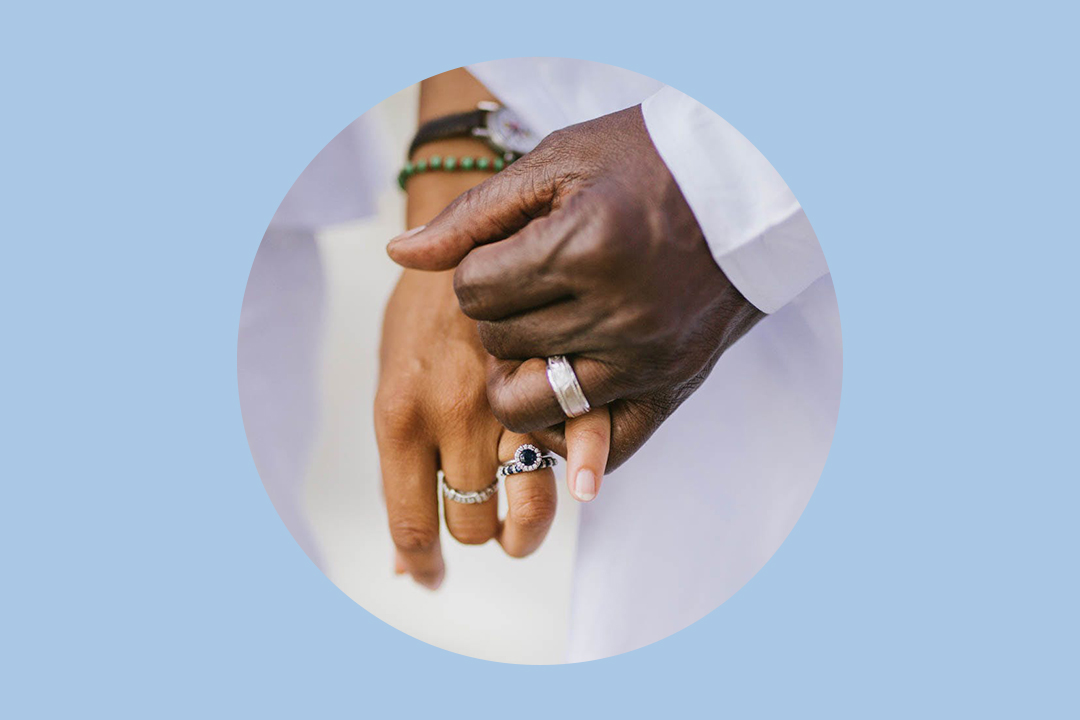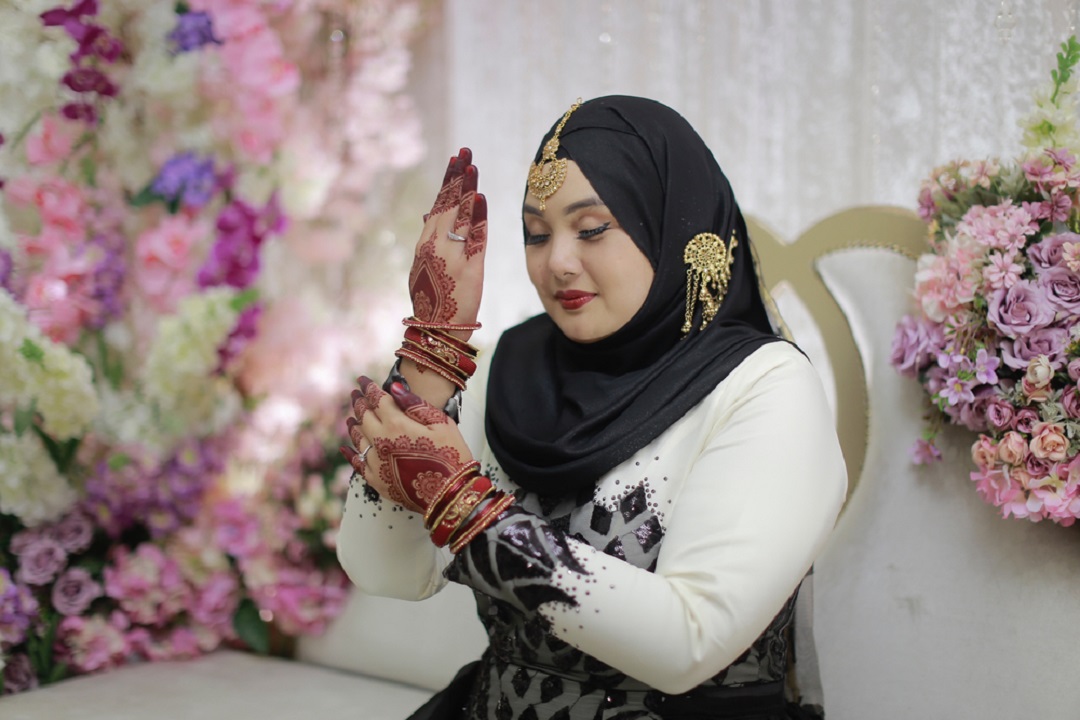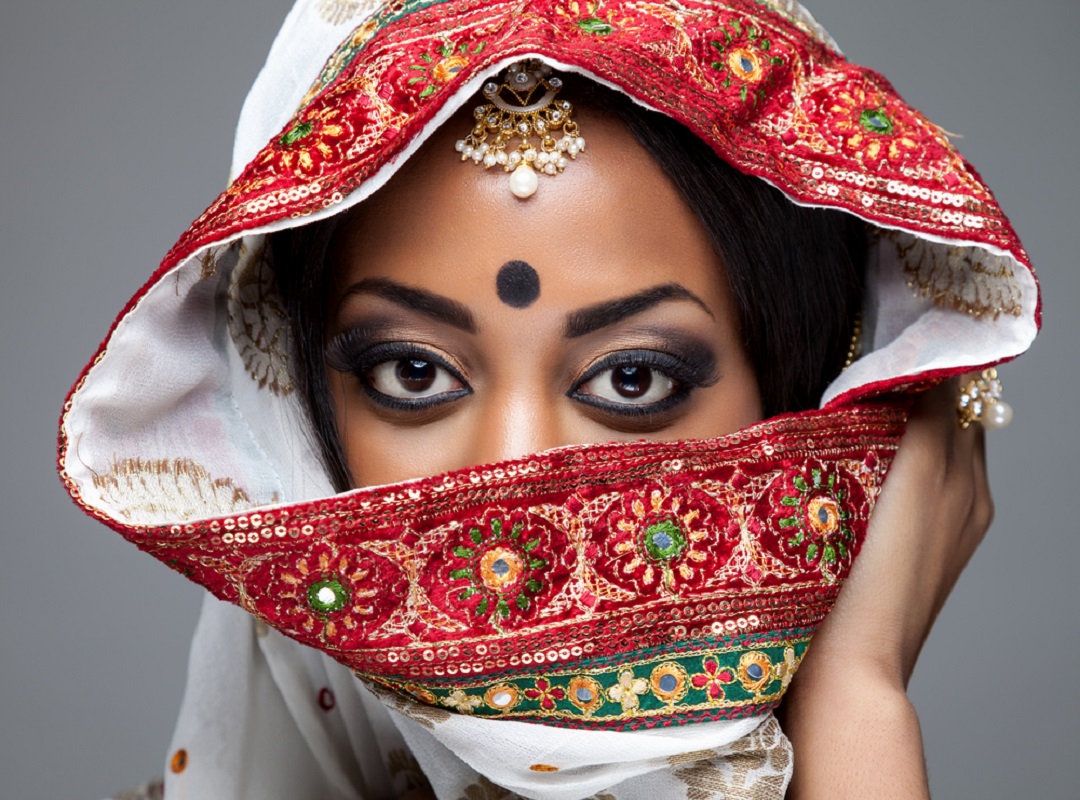- Expert advice/
- Wedding planning 101/
- Wedding planning questions/
- What to Expect at a Black Muslim Wedding
- Wedding planning questions
What to Expect at a Black Muslim Wedding
For a first-time guest, attending a Black Muslim wedding can be a unique experience. Here are a few elements you can expect at the ceremony.
Last updated February 5, 2024

The First Look ✨
- Typically, seating is separated by gender, alcohol is not indulged in, and sometimes the same goes for dancing.
- Be sure to be respectful of attire, cultural nuances, and religious observations as a wedding guest.
As a first time guest at a Black Muslim wedding, you might find several unique aspects that are new to you. Here’s what to expect as far as some of the more common elements of a Black Muslim wedding go, so you can put your best foot forward as a guest.
At the Wedding Venue
On the day of the wedding ceremony, male and female guests are seated separately until the couple is announced as married. At that time, depending on their family’s Muslim traditions, guests may mingle. Sometimes a co-ed section might be allocated for guests not from the Islamic religion who may want to be seated together or as a family. There may or may not be assigned table seating, depending on whether the couple has opted for a sit-down or buffet-style meal for the celebrations afterward.
Wedding Day Attire

At a Muslim wedding ceremony, you will find most guests covering their heads—Black Muslim men with caps and Black Muslim women with scarves, hijab, or another headdress per their culture’s traditional dress. As a guest and especially if you are not a practicing Muslim, you are not expected to participate or follow a dress code, but should you wish to, or the family deems it necessary, they will make arrangements to provide you with such coverings. In general, the traditional wedding attire slants modest with no bare arms and legs displayed but can be opulent. The bride will, of course, wear a Muslim wedding dress. The groom and most men will typically wear a Sherwani, while the Muslim women will wear a traditional formal gown.
The Wedding Ceremony
The actual Muslim wedding ceremony (also called a nikah ceremony) typically takes place in a mosque, is quite short, and includes prayers by the officiant or imam, followed by presenting and signing of the marriage contract (nikah) by both parties, and then an announcement of the wedding having been officiated. For couples seated separately, this is when they would be permitted to sit together in front of their Muslim family, friends, and other guests invited to the wedding. Speeches and toasts are kept to a minimum, if at all, but this will vary from couple to couple depending on how casual or formal the event is.
Celebratory Dinner
This is when the wedding festivities truly come alive. With the religious portion of the day’s events performed and completed, the dinner party afterward is when the couple is seen together, mingling with guests and enjoying a meal with family. Expect a large spread of special dishes made just for the occasion, many of which will be rooted in the specific cultures that the newlyweds trace their ancestry to. In many cases, dinner is a co-ed affair, but beware that this isn’t always the case.
Traditional Customs

Depending on which parts of the world the couple traces their family’s heritage too, there will be several smaller rituals and ceremonies to symbolize the union of the two individuals and their families. You might receive a wedding day agenda at the venue that explains some of the significance behind these actions or a member of the extended family might be made available to you to help understand these cultural nuances. Be aware that some of these practices might not align with your ideas of weddings and be respectful of the general proceedings.
Libations and Such
Since alcohol is forbidden in Islam, the free-flowing Champagne and wine, or open bar concepts you may see at other weddings will be missing at these celebrations. If the couple and their families are particularly broad-minded, there might be some arrangements made for non-Muslims to enjoy a drink or two privately, but this is a rarity and done solely at their discretion. Pork or any form of pork products will never be served at a Muslim wedding. Carrying alcohol into the wedding venue for personal consumption is not looked upon favorably, either.
Entertainment and Dancing
Another aspect that is completely dependent on one’s culture is the entertainment aspect of the wedding day. In some parts, dancing is segregated by gender; other times, couples may have an open dance floor for all to join. You may see larger musical performances and dancing acts by members of the family for the enjoyment of all guests or a more solemn single instrument performance in the background. Many weddings may have no form of entertainment at all, with the lavish dinner spread and interaction with friends and family serving as the highlight of the evening.
Gift-Giving Norms
Though many Americans provide registry information, so guests can choose gifts that the couple would like, this may not be the norm when it comes to Black Muslim weddings. It is typically deemed inconsiderate to ask for gifts—a guest’s presence is considered sufficient.
When gifts are given, decorative envelopes bearing a cash present are most common. Sometimes utilitarian items for the new couple’s home are also acceptable. When in doubt, ask around to understand what the acceptable practices are relevant to that couple.
If you aren’t from the community, attending a Black Muslim wedding as a guest can be quite a revelation and a fun foray into understanding a new culture and way of celebration. Enjoy the festivities as you learn more about how weddings around the world are officiated.
- Expert advice/
- Wedding planning 101/
- Wedding planning questions/
- What to Expect at a Black Muslim Wedding
Find even more wedding ideas, inspo, tips, and tricks
We’ve got wedding planning advice on everything from save the dates to wedding cakes.
